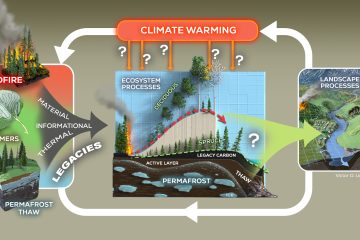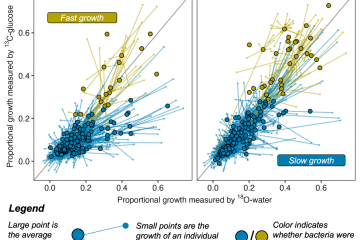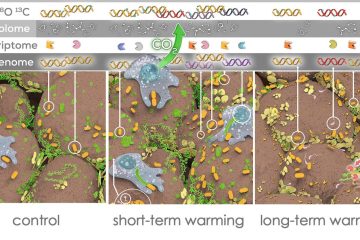Response of soil respiration and its components to experimental warming and water addition in a temperate Sitka spruce forest ecosystem
Future climate change is expected to alter the terrestrial carbon cycle through its impact on soil respiration. In this study, we determined the responses of soil respiration and its components to experimental warming with or without water addition. A replicated in situ heating (∼2 °C above ambient soil temperatures) and water addition (170 mm in total each year) experiment was carried out for the first time in a temperate plantation forest of Sitka spruce over the period 2014–2016. Rhwas measured inside deep collars (35 cm deep) that excluded root growth, while Rswas measured using the static chamber approach and near-surface collars (5 cm deep) and Ra calculated by subtracting Rh from total soil respiration (Rs). Experimental warming significantly increased Rs, Rh and Rh/Rs, but had no effect on Ra. In contrast, none of the respiration components were affected by water addition. Warming increased annual Rh by 62% but had no effect on Ra. Overall, warming did not significantly increase annual Rs. Warming showed a stronger impact on Rs in the non-growing season but had a smaller impact in the growing season. Warming increased Ra in the non-growing season but decreased it in the growing season. The effects of warming on Rh were similar for the two periods. Our results highlight the differential response of Ra and Rh to warming, which was mediated by water addition or season. For this and other similar forest sites that don’t experience water limitation, global warming may have a positive feedback on atmospheric CO2concentrations through enhanced soil respiration.


